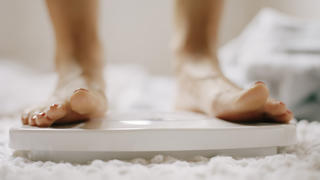Lose Weight > Weight Loss Tips > Weight Loss Articles > Things You Ought To Know First Before Undergoing Liposuction Surgery
Things You Ought To Know First Before Undergoing Liposuction Surgery
With the removal of excess body fat, the body appearance improves and evens out distorted body parts. Breasts, buttocks, abdomen, and the face area are some of the most popular body parts that undergo liposuction.
Foremost reason why people resort to liposuction is for cosmetic reasons. They want to eradicate "love handles", unsightly fat bulges, an abnormal chin line, etc.
Liposuction also helps improve sexual function by reducing fat deposits on the inner thighs, thus allowing easier access to the vagina.
Another reason for undergoing liposuction is body shaping that cannot be achieved by diet and/or exercise.
A note of caution, liposuction is not a cure for generalized obesity.
Liposuction is not as easy as just going to the doctor and telling him or her, "I want a liposuction right now." People who want to have liposuction must meet certain criteria:
1) There should be a preliminary consultation. This includes history of the patient, a comprehensive physical examination, and a psychological health examination;
2) There should be a second consultation to give time for the patient to think over the planned liposuction surgery;
3) If the patient is married, the spouse's presence may be required during the consultation;
4) The patient should ask questions about liposuction, express the reasons for the consultation, and must feel satisfied with the answers to their questions;
5) The patient must fully understand the pre-operative liposuction preparations, the liposuction procedures, and the precise post-operative liposuction care to avoid lethal complications;
6) The patient must have realistic expectations. Liposuction enhances the body appearance and boost self-confidence but it will never result to a perfect body.
Because liposuction is a medical procedure, there are risks involved. Some of the complications that may happen upon having liposuction are:
* Fluid imbalance due to the removal of a lot of liquid during liposuction and/or injection of large amounts of liquid during liposuction which can result to shock, heart problems, or kidney problems.
* Infections happen after any surgery and some physicians prescribe an antibiotic to patients having liposuction so it is important to keep the wound clean. Infections may be life threatening such as necrotizing fasciitis (bacteria eating away the tissue) or the toxic shock syndrome caused by bacteria associated with surgery.
* Embolism occurs when tiny globules of fat trapped in the blood stream blocks the blood flow to the tissue. This may cause permanent disability. Signs of pulmonary embolism are shortness of breath or difficulty of breathing.
* Drug reactions or overdose from lidocaine is fatal. Lidocaine is a drug that numbs the skin and large doses of this is used during liposuction. The effects of lidocaine are lightheadedness, restlessness, drowsiness, slurred speech, muscle twitching, and convulsions. Overdose of this drug may cause the heart to stop which is naturally fatal.
* Burns caused by the ultrasound probe during ultrasound assisted liposuction.
* Visceral perforations or puncture wounds in the organs may require another surgery and can be fatal. During liposuction, the physician does not see where the probe (canula) is, so it is possible to harm internal organs.
* Skin death (skin necrosis) occurs when skin changes color and fall off. This may also cause infection.
* Paresthesias is an altered sensation at the site of liposuction. This may be in the form of increased sensitivity in the area or loss of feeling. Some cases of this are permanent.
* Swelling
* Death
Given that the surgery had no major complications, recovery from liposuction can still be difficult.
The liposuctioned area appears larger than before because of swelling.
Special compression garments must be worn for two to three weeks to reduce swelling, bleeding, and to help contour the new body. The patient starts to feel better after a week or two after liposuction.
Walking is recommended after liposuction to prevent blood clots forming in the legs. Finally, exercise and diet will help keep your new shape.
Related Articles
-
Kettle Ball Workout-What’s The Deal?
If you spend any time looking at fitness magazine
-
Get Back Weight Loss Motivation with NLP: Setting an Anchor
NLP Setting an Anchor Process to Get Back Motivation
-
Ordering Diet Food: A Sluggish But Effective Technique For Weight Loss
Annually you will find lots of folks who start an innovative nutritio
-
Lose Weight: How to Exercise and Burn Fat on a Busy Schedule
In my fitness consulting business, I get the opportunity to talk with
-
The importance of weight loss hypnotherapy
-
Weight Loss - Hair Loss - Is There a Link Between Weight Loss and Hair Loss
There are various causes of hair loss and there is a question about
- DON'T MISS
- 8 Tips To Lose Weight Fast Naturaly
- Frequent Urination Might Be A Symptom Of Diabetes/high Blood Sugar Lever
- Different Ways to Remove Cellulite
- Is Diet Supplement Dangerous?
- How To Lose Weight Effetively And Get An Amzing Body In Just A Few Weeks!
- Top 10 Diet Tips
- Good and fast exercises to lose weight
- Below are a few Features of Weight training regarding Women
- Diets - Shed the Pounds Off Your To-do List
- An abandoned weight-loss drug gets a makeover




